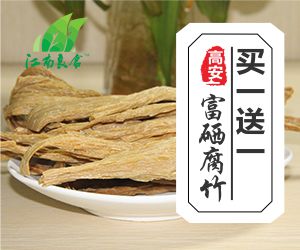The Study Met Its Primary Endpoint with 53.3% and 54.2% of Patients Treated With TAK-279 (15 mg and 30 mg Respectively) Achieving At Least an ACR 20 Response Compared to 29.2% in the Placebo Group at Week 12 (p = 0.002)1
TAK-279 Demonstrated Improvements in Key Secondary Endpoints and a Safety Profile Consistent with the Phase 2b Psoriasis Study1
Takeda Will Initiate Phase 3 Studies in Plaque Psoriasis in FY23 and Psoriatic Arthritis in FY24, While Exploring TAK-279 in Systemic Lupus Erythematosus, Inflammatory Bowel Disease and Other Indications
OSAKA, Japan & CAMBRIDGE, Mass.--(BUSINESS WIRE)--Takeda (TSE:4502/NYSE:TAK) today announced that the company will present positive results from its randomized, double-blind, placebo-controlled, Phase 2b trial evaluating TAK-279, an investigational oral allosteric tyrosine kinase 2 (TYK2) inhibitor with next generation selectivity, in patients with active psoriatic arthritis. These data (Abstract #L12) will be presented on Tuesday, November 14 as part of the late-breaking poster session from 9:00 AM - 11:00 AM PT at the American College of Rheumatology (ACR) Convergence 2023 in San Diego, California.
The study met its primary endpoint with a statistically significant proportion of patients, 53.3% (15 mg) and 54.2% (30 mg), treated with TAK-279 achieving at least an American College of Rheumatology 20 (ACR 20) response compared to 29.2% in the placebo arm at week 12 (p = 0.002).1 The safety and tolerability profile of TAK-279 in the trial was consistent with that observed in the Phase 2b psoriasis study.1 There was no statistically significant difference in ACR 20 seen in the TAK-279 5 mg arm (35.2%) compared to the placebo arm (29.2%).1
“There remains a critical unmet need for psoriatic arthritis treatment options that not only improve the signs and symptoms of the condition, but are well tolerated and convenient for patients,” said Alan Kivitz, MD, MACR, the study’s principal investigator. “As psoriatic arthritis is a condition with diverse presentations of inflammation and skin involvement, the improvements seen with just 12 weeks of treatment in this Phase 2b study in patients with a low mean baseline C-reactive protein level are particularly encouraging. These results support the continued evaluation, across the psoriatic arthritis disease spectrum, of TAK-279, a once-daily oral TYK2 inhibitor with next generation selectivity.”
The study also demonstrated improvements in key secondary endpoints:
- At 15 mg and 30 mg of TAK-279, 26.7% (p=0.005) and 26.4% (p=0.009) of patients achieved ACR 50 response compared to 9.7% of patients on placebo.1
- A numerically higher proportion of patients treated with TAK-279 15 mg (14.7%) and 30 mg (13.9%) achieved ACR 70 compared to those on placebo (5.6%).1
- In patients with a body surface area (BSA) greater than or equal to 3% at baseline, Psoriasis Area and Severity Index (PASI) 75 was achieved in a greater proportion of patients treated with TAK-279 (45.7% [30 mg], 28.3% [15 mg] and 25.6% [5 mg]; p = 0.002, 0.101 and 0.186 vs placebo [15.4%]).1
- In patients with Physician Global Assessment of Psoriasis (PGA-PsO) ≥2 at baseline, a greater proportion of patients treated with TAK-279 30 mg achieved a PGA-PsO score of 0 (clear) or 1 (almost clear) and at least a 2-point improvement from baseline compared to placebo (32.8% [30 mg], 20.6% [15 mg], 20.4% [5 mg] vs. 15.8% [placebo]; p = 0.034 for 30 mg).2
- Reductions were observed in mean change from baseline in the tender joint count and swollen joint count in all groups, with higher reductions with the 15 mg and 30 mg doses compared to placebo and 5 mg TAK-279.1
- Minimal disease activity (MDA) response rates were higher in TAK-279 15 mg and 30 mg groups than in placebo (28.0% [15 mg] and 29.2% [30 mg]; p = 0.017 and 0.014 vs. placebo [12.5%]).2
The most common treatment-emergent adverse events (TEAEs) in patients who received TAK-279 5 mg, 15 mg, or 30 mg versus placebo, respectively, were nasopharyngitis (8.5%, 9.3%, 9.7%, 4.2%), upper respiratory tract infections (11.3%, 4%, 9.7%, 2.8%), headache (2.8%, 8.0%, 5.6%, 4.2%) and rash (4.2%, 8%, 5.6%, 0%).1 No opportunistic infections, major adverse cardiovascular events or differences in mean laboratory parameters of interest were observed, compared with placebo. There was no clinically significant difference in adverse event rates between doses of TAK-279. Serious and grade 3 or higher TEAEs occurred infrequently and at a similar rate in the TAK-279 and placebo groups.1
“Based on these promising efficacy and safety results, achieved at 12 weeks, we plan to initiate a Phase 3 study of TAK-279 in psoriatic arthritis as well as commence a Phase 3 study in plaque psoriasis,” said Andy Plump, President, Research & Development, Takeda. “We are also advancing the development of TAK-279 in Crohn’s disease, ulcerative colitis and systemic lupus erythematosus and exploring a range of other potential indications. These opportunities are being explored in parallel with the psoriasis and psoriatic arthritis programs.”
About TAK-279
TAK-279 is a highly selective, oral allosteric tyrosine kinase 2 (TYK2) inhibitor in late-stage development,3 with approximately 1.3 million–fold greater selectivity for TYK2 as compared with JAK1.4 TAK-279 has the potential to become an important treatment option in multiple immune-mediated inflammatory diseases. In Phase 1 studies, TAK-279 showed a good tolerability profile, a dose-dependent trend in exploratory clinical activity and a pharmacokinetic profile allowing for once-daily solid oral dosing.5 In a Phase 2b study in patients with moderate-to-severe psoriasis, a statistically significant greater proportion of patients receiving TAK-279 achieved Psoriasis Area and Severity Index (PASI) 75, 90 and 100 in the 5mg, 15mg and 30mg dosing arms compared to placebo at 12 weeks.3 TAK-279 is an investigational compound that has not been approved for use by any regulatory authority.
About the TAK-279 Phase 2b Study in Psoriatic Arthritis
The Phase 2b study (NCT05153148) is a randomized, multicenter, double-blind, placebo-controlled multiple-dosed trial designed to evauate the efficacy, safety and tolerability of TAK-279 in patients with active psoriatic arthritis.6 Eligible patients were aged ≥ 18 years, with psoriatic arthritis symptoms for ≥ 6 months prior to screening, met Classification criteria for Psoriatic Arthritis (CASPAR), and had ≥ 3 tender and ≥ 3 swollen joint counts (TJC/SJC) at enrollment despite prior NSAID, DMARD or biologic treatment.6 In total, 290 patients were randomized and treated (1:1:1:1 ratio) to receive one of three doses of TAK-279 or placebo once daily for 12 weeks with a 4 week safety follow up period; 245 completed 12 weeks’ treatment.1,6 Baseline characteristics were generally comparable across groups (except for a lower mean TJC in the 30 mg group); 58.6% had BSA ≥ 3% (of which mean baseline PASI score was 6.2), and 32.1% had prior biologic use (20.7% TNFis).1 Mean baseline high-sensitivity C-reactive protein (hsCRP) was 7.0 mg/L; 45.9% had hsCRP ≥ 3 mg/L.1 The primary endpoint was the proportion of patients achieving at least an ACR 20 response at week 12.6
The ACR 20, ACR 50, and ACR 75 are composite measures defined as 20%, 50% and 75% improvement, respectively, in the number of tender and number of swollen joints, and in three of the following five criteria: patient global assessment of psoriatic arthritis, physician global assessment of psoriatic arthritis, patient pain scale, disability history questionnaire and an acute phase reactant.6
The Psoriasis Area and Severity Index (PASI) is a scoring system to evaluate baseline and response of therapy in psoriasis. PASI 75 is a binary outcome that indicates a 75% or greater improvement in PASI from baseline.7
About Psoriatic Arthritis
Psoriatic arthritis is a chronic immune-mediated inflammatory disease, characterized by inflammation causing joint pain, stiffness, and swelling and occurs with the skin condition psoriasis.8 Psoriatic arthritis affects approximately 10 million people globally.9 Psoriatic arthritis is a heterogenous condition - affecting everyone differently.10 Symptoms may be mild or severe, affect just a few or many joints, and symptoms can come and go.10 Chronic inflammation seen in psoriatic arthritis may result in irreversible joint damage if not managed appropriately.8 Progressive disease is associated with substantial physical disability11 and significant mental health disorders, such as anxiety and depression.12
About Tyrosine Kinase 2 (TYK2) Inhibitors
Tyrosine kinase 2 (TYK2) is an intracellular enzyme that belongs to the Janus family of protein tyrosine kinases.13 TYK2 is a member of the Janus kinase-signal transducer and activator of transcription (JAK-STAT) signaling pathway, which mediates signaling downstream of key immune cytokine receptors.13 Inflammatory cytokine signaling is associated with several immune-mediated inflammatory diseases, including psoriasis, psoriatic arthritis, systemic lupus erythematosus and inflammatory bowel disease.14 Selective allosteric inhibition of TYK2 may be a promising therapeutic approach to target immune-mediated inflammation while potentially decreasing the risk of JAK-related toxicity.15
About Takeda
Takeda is focused on creating better health for people and a brighter future for the world. We aim to discover and deliver life-transforming treatments in our core therapeutic and business areas, including gastrointestinal and inflammation, rare diseases, plasma-derived therapies, oncology, neuroscience and vaccines. Together with our partners, we aim to improve the patient experience and advance a new frontier of treatment options through our dynamic and diverse pipeline. As a leading values-based, R&D-driven biopharmaceutical company headquartered in Japan, we are guided by our commitment to patients, our people and the planet. Our employees in approximately 80 countries and regions are driven by our purpose and are grounded in the values that have defined us for more than two centuries. For more information, visit https://www.takeda.com.
Important Notice
For the purposes of this notice, “press release” means this document, any oral presentation, any question and answer session and any written or oral material discussed or distributed by Takeda Pharmaceutical Company Limited (“Takeda”) regarding this release. This press release (including any oral briefing and any question-and-answer in connection with it) is not intended to, and does not constitute, represent or form part of any offer, invitation or solicitation of any offer to purchase, otherwise acquire, subscribe for, exchange, sell or otherwise dispose of, any securities or the solicitation of any vote or approval in any jurisdiction. No shares or other securities are being offered to the public by means of this press release. No offering of securities shall be made in the United States except pursuant to registration under the U.S. Securities Act of 1933, as amended, or an exemption therefrom. This press release is being given (together with any further information which may be provided to the recipient) on the condition that it is for use by the recipient for information purposes only (and not for the evaluation of any investment, acquisition, disposal or any other transaction). Any failure to comply with these restrictions may constitute a violation of applicable securities laws. The companies in which Takeda directly and indirectly owns investments are separate entities. In this press release, “Takeda” is sometimes used for convenience where references are made to Takeda and its subsidiaries in general. Likewise, the words “we”, “us” and “our” are also used to refer to subsidiaries in general or to those who work for them. These expressions are also used where no useful purpose is served by identifying the particular company or companies.
Forward-Looking Statements
This press release and any materials distributed in connection with this press release may contain forward-looking statements, beliefs or opinions regarding Takeda’s future business, future position and results of operations, including estimates, forecasts, targets and plans for Takeda. Without limitation, forward-looking statements often include words such as “targets”, “plans”, “believes”, “hopes”, “continues”, “expects”, “aims”, “intends”, “ensures”, “will”, “may”, “should”, “would”, “could” “anticipates”, “estimates”, “projects” or similar expressions or the negative thereof. These forward-looking statements are based on assumptions about many important factors, including the following, which could cause actual results to differ materially from those expressed or implied by the forward-looking statements: the economic circumstances surrounding Takeda’s global business, including general economic conditions in Japan and the United States; competitive pressures and developments; changes to applicable laws and regulations, including global health care reforms; challenges inherent in new product development, including uncertainty of clinical success and decisions of regulatory authorities and the timing thereof; uncertainty of commercial success for new and existing products; manufacturing difficulties or delays; fluctuations in interest and currency exchange rates; claims or concerns regarding the safety or efficacy of marketed products or product candidates; the impact of health crises, like the novel coronavirus pandemic, on Takeda and its customers and suppliers, including foreign governments in countries in which Takeda operates, or on other facets of its business; the timing and impact of post-merger integration efforts with acquired companies; the ability to divest assets that are not core to Takeda’s operations and the timing of any such divestment(s); and other factors identified in Takeda’s most recent Annual Report on Form 20-F and Takeda’s other reports filed with the U.S. Securities and Exchange Commission, available on Takeda’s website at: https://www.takeda.com/investors/sec-filings/ or at www.sec.gov. Takeda does not undertake to update any of the forward-looking statements contained in this press release or any other forward-looking statements it may make, except as required by law or stock exchange rule. Past performance is not an indicator of future results and the results or statements of Takeda in this press release may not be indicative of, and are not an estimate, forecast, guarantee or projection of Takeda’s future results.
Medical Information
This press release contains information about products that may not be available in all countries, or may be available under different trademarks, for different indications, in different dosages, or in different strengths. Nothing contained herein should be considered a solicitation, promotion or advertisement for any prescription drugs including the ones under development.
1 TAK-279 PsA Ph2b ACR abstract (TKPO011). Efficacy and safety outcomes of TAK-279, a selective oral tyrosine kinase 2 (TYK2) inhibitor, from a randomized, double-blind, placebo-controlled phase 2b trial in patients with active psoriatic arthritis. Presented at American College of Rheumatology (ACR) 2023 Convergence, November 10–15, 2023 San Diego, CA, USA.
2 Takeda Pharmaceuticals. Data on File.
3 Armstrong A, Lynde C, Forman S, et al. Efficacy and safety results from the randomized double-blind, placebo-controlled phase 2b trial of TYK2 inhibitor NDI-034858 in moderate-to-severe psoriasis. Presented March 17-21, 2023, New Orleans, Louisiana at the 2023 American Academy of Dermatology Annual Meeting.
4 Leit S, J, Greenwood Carriero S, et al. Discovery of a potent and selective tyrosine kinase two inhibitor: TAK-279. J Medicinal Chemistry.2023;66(15):10473-10496. doi.org/10.1021/acs.jmedchem.3c00600.
5 Gangolli EA, Carreiro S, Leit S, et al. Characterization of pharmacokinetics, pharmacodynamics, tolerability and clinical activity in Phase 1 studies of the novel allosteric tyrosine kinase 2 (TYK2) inhibitor NDI-034858. Presented May 18-21, 2022, Portland, OR at the 2022 Society for Investigative Dermatology Annual Meeting.
6 ClinicalTrials.gov. A Study to Evaluate the Efficacy, Safety, and Tolerability of NDI-034858 in Subjects With Active Psoriatic Arthritis. Available at: https://classic.clinicaltrials.gov/ct2/show/NCT05153148. Last accessed: November 2023
7 Rodgers M, Epstein D, Bojke L, et al. Etanercept, Infliximab and Adalimumab for the Treatment of Psoriatic Arthritis: A Systematic Review and Economic Evaluation. Southampton (UK): NIHR Journals Library; 2011 Feb. (Health Technology Assessment, No. 15.10.) Appendix 18, Estimation of Psoriasis Area and Severity Index score for treatment responders in the decision model. Available at: https://www.ncbi.nlm.nih.gov/books/NBK109508/. Last accessed: November 2023.
8 American College of Rheumatology. Psoriatic Arthritis. Available at: https://rheumatology.org/patients/psoriatic-arthritis. Last accessed: November 2023.
9 Scotti L, Franchi M, Marchesoni A, Corrao G. Prevalence and incidence of psoriatic arthritis: A systematic review and meta-analysis. Semin Arthritis Rheum. 2018 Aug;48(1):28-34. doi:10.1016/j.semarthrit.2018.01.003.
10 Arthritis Foundation. Psoriatic Arthritis. Available at: https://www.arthritis.org/diseases/psoriatic-arthritis. Last accessed: November 2023.
11 Mease P, Strand V, Gladman D. Functional impairment measurement in psoriatic arthritis: Importance and challenges. InSeminars in arthritis and rheumatism 2018 Dec 1 (Vol. 48, No. 3, pp. 436-448). WB Saunders.
12 Zhao SS, Miller N, Harrison N, Duffield SJ, Dey M, Goodson NJ. Systematic review of mental health comorbidities in psoriatic arthritis. Clinical Rheumatology. 2020 Jan;39:217-25.
13 Muromoto R, Oritani K, Matsuda T. Current understanding of the role of tyrosine kinase 2 signaling in immune responses. World J Biol Chem. 2022;13(1):1–14. doi:10.4331/wjbc.v13.i1.1.
14 Bunte K et al. Th17 Cells and the IL-23/IL-17 Axis in the Pathogenesis of Periodontitis and Immune Mediated Inflammatory Diseases. 2019 Intl J Molecular Sci.
15 Krueger JG, McInnes IB, Blauvelt A. Tyrosine kinase 2 and Janus kinasesignal transducer and activator of transcription signaling and inhibition in plaque psoriasis. J Am Acad Dermatol. 2022;86(1):148-157. doi:10.1016/j.jaad.2021.06.869..








